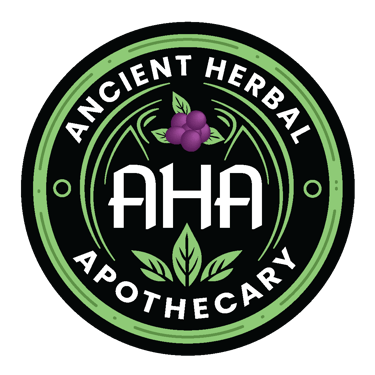The World of Herbal Teas: Discovering Their Unique Benefits and Best Practices
Luann Morris
8/14/20252 min read


What Sets Herbal Teas Apart from Camellia Sinensis
When it comes to tea, many of us think of the classic options derived from the camellia sinensis plant, like black, green, or white tea. However, herbal teas offer a delightful alternative that is often underestimated. Unlike traditional teas, herbal infusions are made from a variety of herbs, flowers, fruits, and spices, completely separate from the camellia sinensis family. This means that herbal teas can offer diverse flavors, aromas, and health benefits that you won’t find in regular tea.
The Health Benefits of Herbal Ingredients
Herbal teas like those made from milky oats, turmeric, ginger, lemon balm, chamomile, peppermint, dandelion, St. John's wort, and orange peel are not only tasty, but they are also packed with benefits. For instance, milky oats are known for their soothing properties and can help in reducing anxiety, while turmeric is often praised for its anti-inflammatory effects.
Ginger, with its warm and zesty flavor, can aid digestion and boost immunity. Lemon balm and chamomile are excellent for relaxation and can promote better sleep. Peppermint tea is a go-to for alleviating headaches and digestive issues, while dandelion tea can aid liver health. St. John's wort is recognized for its potential mood-lifting properties, and orange peel adds a refreshing twist while being rich in vitamin C. This diverse range of ingredients showcases just how varied and healthy herbal teas can be!
Best Practices for Steeping Herbal Teas
So, how can you ensure you maximize the flavors and benefits of your herbal tea? Here are some best practices for steeping herbal teas:
Use Fresh Ingredients: If brewing from loose herbs, make sure they are fresh to capture their full potential.
Water Temperature: Depending on the herb, the ideal steeping temperature typically ranges from 190 to 212°F (88 to 100°C). Turmeric, ginger, and dandelion taste best with boiling water.
Steeping Time: While traditional teas are often steeped for 3 to 5 minutes, herbal teas may require a longer steeping time of up to 40 minutes to fully extract their benefits.
Cover the Tea: When steeping your herbal blend, covering the infusion helps trap heat and release more essential oils.
Experiment: Don’t hesitate to mix and match different herbs for unique flavors and benefits!
Incorporating herbal teas into your routine not only enhances your beverage choices but also supports your wellness journey. By understanding their differences from traditional teas and mastering the steeping process, you can create delicious and healthful infusions right at home. Sip, savor, and enjoy the wonderful world of herbal teas!
